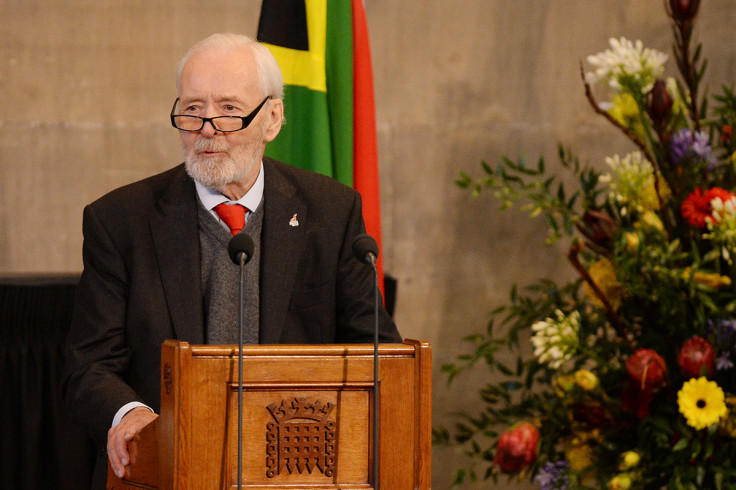Tony Benn: My Duels with The Most Dangerous Man in British Politics

Tony Benn, the firebrand socialist, powerful orator and charismatic and divisive politician, could be an intimidating figure – until you met him.
The public image of a rabble rouser ready to march his red army to the barricades at the drop of a hat was matched by the routine media description of him as the most dangerous man in British politics.
And he was certainly dangerous, but not just because of those unbending socialist views which were ignited in office and became stronger once the constraints of ministerial responsibility were removed.
They saw him routinely accused of keeping Labour out of power for 18 years. Others claimed it was those senior figures who quit Labour to start the SDP in a petulant reaction to Benn's influence that did the real damage.
But he was also dangerous because, in person, he was unfailingly courteous, warm and funny. And, of course, persuasive.
That last is a quality he shared with the man he opposed, perhaps above all others in the Labour party, Tony Blair, who he would say was creating a new party with little real connection to Labour.
Both men had the near-magical ability to utterly convince the listener of their arguments as they were making them. It was only a little later that the spell would often evaporate after a bit of reflection.
In person, he was certainly not intimidating at all – well not much. His habit of answering questions with mini history lessons about, for example, the growth of the Labour movement from the Chartists on, could be overwhelming and leave the interviewer wondering where on earth to go next.
But any nervousness that might afflict individuals, particularly journalists, when meeting him in his home disappeared pretty quickly.
Within moments of settling down to an interview with him in his large Holland Park house, he would offer to make you a cup of tea, possibly light up his pipe and, apologetically, switch on the tape recorder that he inevitably deployed.
His basement office walls were lined with what seemed to be thousand upon thousand of old cassette tapes and there were any number of recorders, video cameras, computers, books and magazines on every available surface.
The tape, he said, was just for his own purposes so he could record the event for his diaries.
Journalists all knew, however, they were a weapon to be deployed should he believe he had been mis-quoted. Although I cannot recall a single occasion when any journalist was presented with such a challenge – which probably just goes to prove it worked.
I also recall being more than a little taken aback when, about three-quarters of the way into one long interview with him – almost certainly about the evils of New Labour – he leaned over and switched off his machine.
Horror. Did that mean my questioning had been so lame that the interview was not diary material (quite likely) or that I had somehow suggested I was no threat (don't tell the office). Either way I left that particular interview feeling I had just lost one.
It is too easy to say there are no great Commons performers or commanding individuals in politics nowadays - Tony Blair, William Hague and George Galloway immediately leap to mind as orators who can pull out all the stops when the occasion requires it, for example.
But the homogenisation of British politics, the increasingly managerial approach to the business of party politics and the exclusion from candidates lists of anyone with strong independent views has pretty much ensured individuals like Tony Benn have disappeared.
The days when hacks would rush into the Commons chamber just to listen to a particularly powerful speaker, almost irrespective of what the debate was about, have long gone.
But Tony Benn was most definitely in the first division of that once formidable group.
© Copyright IBTimes 2025. All rights reserved.






















